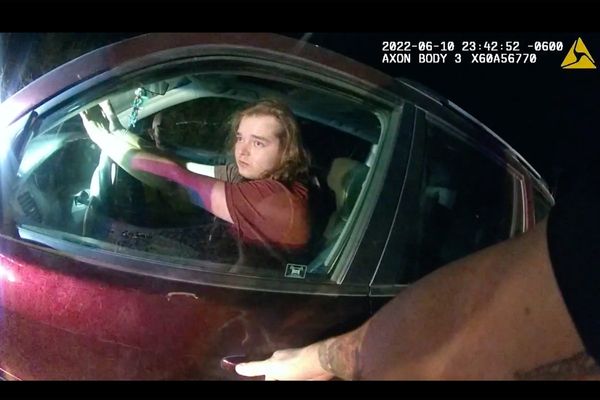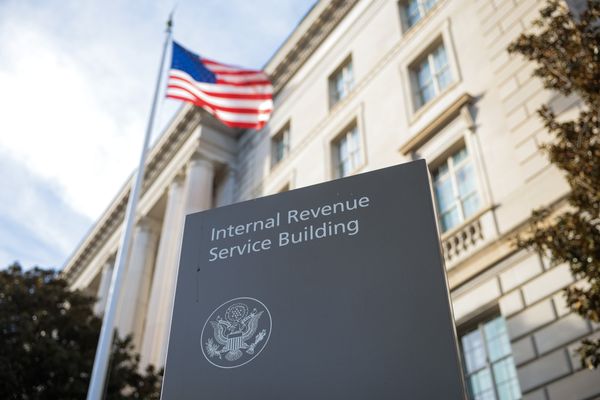SAN FRANCISCO _ As word spread Wednesday morning of Travis Kalanick's sudden departure from the helm at troubled ride-hailing startup Uber, Silicon Valley pundits, investors and analysts all tried in different ways to make sense of one of the most startling developments to come out of the tech world in recent years.
Kalanick's resignation, announced the evening before, comes at a tumultuous time for the San Francisco-based company. A week ago, amid internal investigations into a corporate culture that critics say was laced with incidents of sexual harassment and bullying, the CEO said he'd be taking a leave of absence from the $70 billion company he founded. Now, after his surprising response to a letter signed by several of Uber's shareholders, Kalanick is out _ or almost out, since he'll remain as a member of the board and one of the company's largest shareholders.
The news is sure to have an impact far beyond the executive offices at Uber's headquarters on Market Street in downtown San Francisco: The company has been reportedly planning to go public, perhaps as early as this year, and those plans could be impacted either positively or negatively by Kalanick's departure. And in the larger context of the sharing economy Uber became the poster child for, the shakeup at the top levels raises questions about the health and sustainability of the growing community of younger, smaller startups as well.
While some tech watchers cheered Kalanick's ouster as the necessary culmination of months of scandal, the move left others with a sense of foreboding.
Early Uber investor Bradley Tusk of New York-based Tusk Ventures was up reading a book on his phone at 1 a.m. Eastern Time when he saw a news alert from The Wall Street Journal announcing Kalanick's departure. Tusk immediately was gripped with worry _ both for the company he has a significant stake in and for the man he's worked closely with for the past six years.
It won't be that difficult to find a solid executive to take Uber public, clean up its human resources troubles and get the company back on solid legal footing, Tusk said. But Uber needs more than that if it's going to continue to shape the future of transportation.
"Long term, to compete with Apple and Tesla and Google and Amazon, you need someone really brilliant, really visionary, really relentless," Tusk said. "Travis was that person. Finding another Travis is not going to be easy."
Not only did Kalanick build a $70 billion empire and upend the taxi industry, he created a service so ubiquitous that its name has become a verb _ an honor that gives Uber a place of distinction alongside Google in Silicon Valley lore. Removing Kalanick from Uber's helm is a huge risk, Tusk said.
"It's one of those moves that will quiet critics, will win some short-term praise and maybe will even work for the next few years," Tusk said. "But if you look up in 10 years, if Uber is not a $500 billion company and is not radically dominating the way people get around, it's probably because of this one decision."
The wheels of Kalanick's ouster started turning Tuesday, when Uber stakeholders with Benchmark Capital drafted a letter demanding that he step down and reached out to other company investors for support, according to an Uber investor with knowledge of the situation who asked not to be named.
When Benchmark shareholders called Kalanick to inform him of the demands in the letter, he initially did not take the news well and was determined to fight the coup, the person said. But after Kalanick spoke with other members of his board, he realized he had lost all support. About five or six hours after the first phone call, Kalanick agreed to resign.
While Kalanick likely could have fought the ouster and won _ he and co-founder Garrett Camp and the company's first employee, Ryan Graves, together hold a majority of board votes _ he seemed to realize how damaging such a fight would be, the person said.
There was no specific incident over the past week to make investors decide Kalanick taking a leave of absence wasn't enough, the person with knowledge of the situation said. Instead, stakeholders decided running a company in limbo _ with a CEO on an indefinite leave of absence and a handful of executives running the company _ wasn't tenable. Now Uber will launch into a search for a new CEO, allowing the company to move forward.
Shawn Carolan, Managing Director of Menlo Ventures and an early investor in Uber, took to Twitter to sing Kalanick's praises, saying he "has done a lot of good and created millions of opportunities for drivers with his talent and tireless devotion to Uber's mission: 'make transportation as reliable as running water.'"
Carolan went on to tweet of Kalanick that "sometimes great leadership means empowering others to lead the task at hand. That is what he has done here to help important and necessary changes at the company happen so Uber can reach its full potential."
Uber's board also issued a statement: "Travis has always put Uber first. This is a bold decision and a sign of his devotion and love for Uber. By stepping away, he's taking the time to heal from his personal tragedy while giving the company room to fully embrace this new chapter in Uber's history. We look forward to continuing to serve with him on the board."
The move comes as Kalanick continues to mourn the sudden death of his mother, who was killed in a boating accident last month that also injured his father.
Kalanick, 40, handed in his resignation Tuesday, an Uber spokesman said. Quoting "people familiar with the matter," the Wall Street Journal reported that several investors had pushed Kalanick to resign in an effort to steady the company's course as he struggled to clean up, among other things, charges that its workplace was sexist and oppressive for women. The report said Uber has no replacement for Kalanick, an especially worrisome development given the company currently has no financial or operating chiefs and is missing other key executives as well. Recent C-suite departures included one of Kalanick's top deputies, Emil Michael, who was pushed out last week by the board.
"I love Uber more than anything in the world and at this difficult moment in my personal life I have accepted the investors request to step aside so that Uber can go back to building rather than be distracted with another fight," Kalanick said in a statement.
The Journal said investors had demanded Kalanick step down after drawing months of criticism for his aggressive management style, which included a video of him chewing out an Uber driver; that video went viral. One of those people calling for Kalanick to go was one of the company's biggest shareholders, the venture capital firm Benchmark, which has one of its partners, Bill Gurley, on Uber's board.
Others who signed the letter include Menlo Ventures, First Round Capital and Lowercase Capital, according to the Journal report.
"There will be many pages in the history books devoted to @travisk _ very few entrepreneurs have had such a lasting impact on the world," Gurley tweeted.
In a statement, the board reportedly called Kalanick's decision "a sign of his devotion and love for Uber."
Not everyone was applauding Kalanick as he left the building. Commenting on the departure in a column on tech news website Recode, Kara Swisher and Johana Bhuiyan write: "It's about time."
The authors said Kalanick had become "a giant liability to the car-hailing company for a growing number of reasons, from sketchy business practices to troubling lawsuits to a basic management situation that was akin to really toxic goat rodeo. Thus, he had to go, even though some sources said he had the voting power to stay."
Despite the innovation and leadership, albeit flawed, that many felt Kalanick had brought to Uber, his skillset could not stand up to the powerful forces allied against him and demanding a change. They included include Benchmark, Fidelity and Menlo Ventures, all of whom sent Kalanick a joint letter called "Moving Uber Forward" on Tuesday.
In a side note, Recode points out that Google Ventures was not among the group calling for Kalanick to step down, even though its parent company, Alphabet, is now in a major lawsuit with Uber over allegations that it stole self-driving car technology from Alphabet's Waymo unit.
"While a lot of the focus at Uber has been on pervasive sexism and sexual harassment _ due to an explosive blog post by former Uber engineer Susan Fowler (kudos to her, by the way) _ many think the Waymo litigation is a bigger threat to Uber," said the Recode column.
Uber must now find a new leader to replace Kalanick. Among the names who have been mentioned as possible replacements: Former Disney COO Tom Staggs, CVS' Helena Foulkes, and a range of media and transportation execs.







